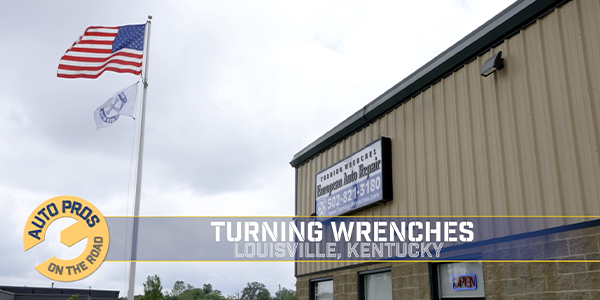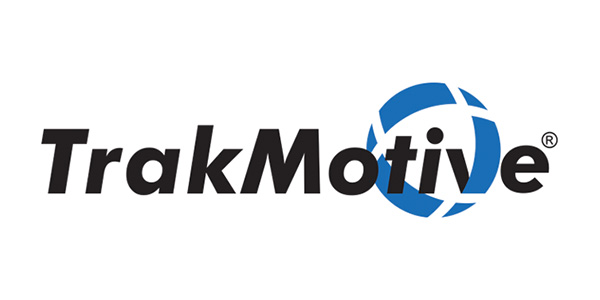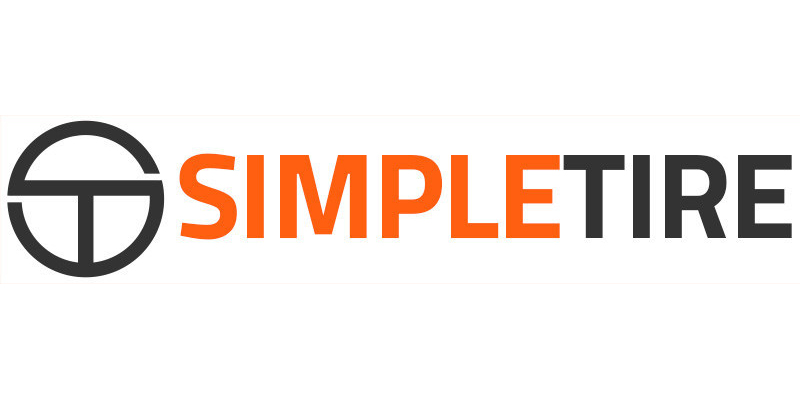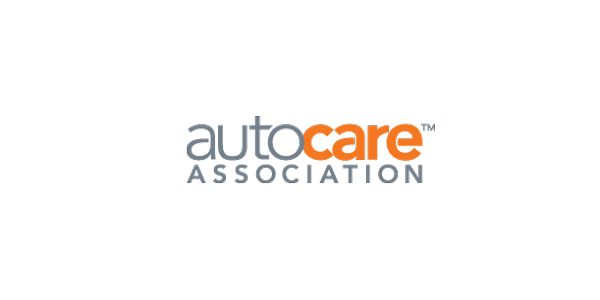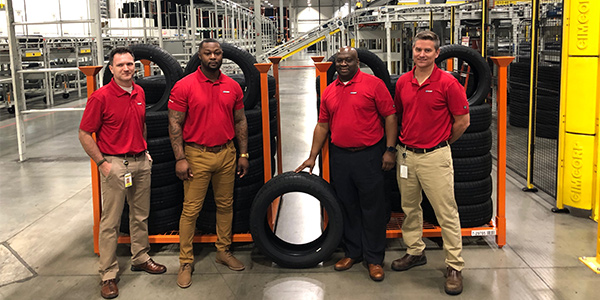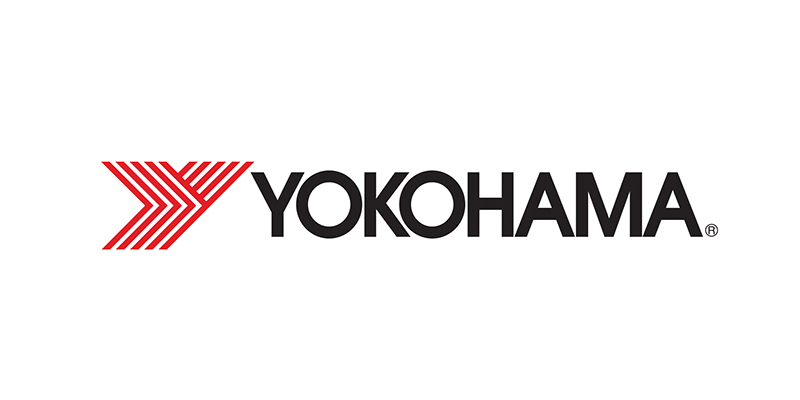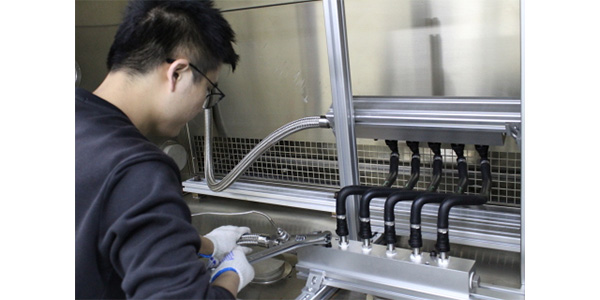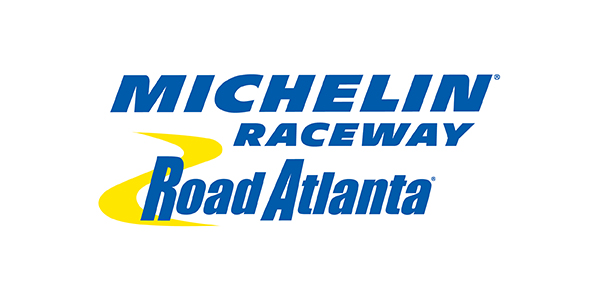G.S. Sareen is president of Omni United Tire, the first tire manufacturer to be certified carbon neutral for its Radar Tires brand. Omni United is headquartered in Singapore. 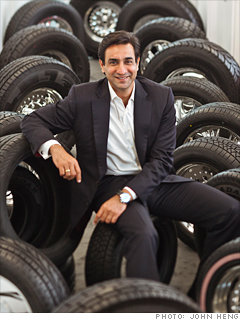
Q: Omni United has the three campaigns for social responsibility right now. Why are you getting involved with those three campaigns in particular?
Sareen: I already believe that social responsibility has become a bit of a fashion. You know, people make money, and they give way 2% or some small percentage of their profit to basically get rid of the guilt, and that is considered as a big deal in terms of social responsibility. I’ve always believed that social responsibility is not about donations or charity, but about running a corporation responsibly.
“So why did we get involved with the Breast Cancer Research Foundation? We researched a whole bunch of charities as to where we would lend our support. And the tire business is a fairly masculine kind of business, so we thought we had to bring a feminine cause into the industry. And we thought this would be the right thing because one in eight women in the U.S. is affected by breast cancer at some stage or the other. This dreaded disease, unfortunately, touches everybody. It could be somebody’s mother, sister or girlfriend, but it is touching everybody in a very unfortunate way. And so we thought it’s about time that we find a cure. This particular foundation has got research going on in a bunch of countries, and the charity goes toward finding a cure for breast cancer. It’s not toward taking care of breast cancer patients. It’s toward finding a cure. So, we do fund a bunch of research, scientists who are working toward finding a cure. That’s where we are, and that’s how we got involved with this.”
Q: Now, specifically with the Breast Cancer Research Foundation, what has your relationship been like with them, and what benefits have both your company and the Breast Cancer Research Foundation experienced as a result of teaming with them?
Sareen: You know, I don’t think we would have seen any significant result or increase in sales. I don’t think that was the reason. We did not do this to increase our sales or any of those issues. That’s a very obscene way of contributing to a charity, and I definitely want to stay away from that. With breast cancer research, every dollar counts, every little cent counts. So, the more we contribute to the charity, the more research gets funded. So, I think it’s that. Now, has this benefited us in any way? I would not like to even think about that because that was not at all the aim, but surely it has positioned the company internally with the employees. When you’re hiring people, when you’re looking at things like that, people do come with a sense that you are a more responsible company, where it’s not just about hard numbers. It’s got a little purpose to it. It’s not just money and bottom-line and top-line and that kind of stuff.
Q: So, it’s more about just being socially responsible?
Sareen: Being socially responsible, as I mentioned earlier, is not about contribution. It’s about running your corporation socially responsible. I think people have gotten mixed up in the definition of corporate social responsibility. But specifically, it’s a fact of our contribution to BCRF, and having raised anything or having gained anything, I would not like to even think about that. That’s a message I definitely don’t want to convey to anybody who wants to participate in a charity — that you gain something for it. Charity is not to gain. Charity is only to give.
Q: Omni is also now a zero carbon tire company. What led you to that initiative, and what steps did you have to take to do that, and what is still in the process?
Sareen: It’s a very good question, and now this is where social responsibility comes in. This is a question about how we are running a corporation responsibly, and this is a step in that direction. When we produce a tire, we have a certain amount of carbon emission. And so, are we doing anything about it, or do we only do things that the law requires of us? Whenever there’s a legal implication, people follow the law, but nobody on their own is doing things that really takes care of the mess that one creates. Our effort was to first of all quantify what are the carbon emissions that we create in producing a Radar tire. We commissioned Ernst & Young, which is one of the top five consulting companies in the world, to do a study for us. They were able to do a very exhaustive study in which they went to all of our factories. And it’s not just the production site, it’s also the manpower, the driving to the factories and electrical consumption and also people driving to sell, shipping, and delivery logistics. It was a fairly complicated and a complex exercise. That got completed sometime in the middle or toward the end of the third quarter last year. With that study, they quantified how much carbon emission or how many kilotons of carbon dioxide gas we actually contribute in producing a Radar tire. Now, with that formula in hand, it’s very easy for us to calculate. We sell X million tires, multiply that by that number, and this is the kilotons of carbon dioxide gas that we are contributing.
“But that’s just the finding-out phase. The second phase is how to fix it. If you are creating a certain amount of pollution, you need to do certain activities to offset that. Our long-term aim is to bind into foundations and things like that, where we offset our own carbon footprint. We invested in a wind farm company out of Germany to buy carbon credits from them to offset. So in short, if we are creating X kilotons of carbon dioxide gas, we are buying X kilotons of carbon credits from the United Nations approved carbon credit seller, which is documented and also audited by Ernst & Young. So whatever carbon dioxide emissions we are creating, we have completely offset that 100%. The aim is to become a carbon positive company.”
Q: Is this expensive to do this or is it affordable?
Sareen: I think it’s absolutely affordable. I think everybody can do that. It’s not a big deal at all. It sounds very expensive, but at this point of time, it’s not. You know, carbon credits are a little bit like the stock exchange. It’s a demand and supply based situation. If there’s more demand and less supply, the carbon credit gets more expensive.
“But the idea is not to only buy carbon credits. That’s the easiest way of offsetting your carbon footprint. But the logical way of doing that, or I think, the sustainable way of doing that is having your own green initiative which offsets the stuff that you’re doing.”
Q: How much did you realize needed to be changed with your processes?
Sareen: You mean how much did we have to change our processes? First is to establish what is your carbon footprint. Once you know that, then there are two ways of fixing it. One is correcting your processes, and second is offsetting it. So, if you got 100, as an example, as your carbon footprint, by changing your processes, you can maybe adjust 10 or 15 or 20, at best. Then, you still need 80. And then, you go and buy carbon credits, or you do some other green initiative. You can start planting trees. There are tons of activities that you can do to take care of that, the rest of your 80%.
Q: How long did it take you to become zero carbon?
Sareen: Not much, because as I said, the difficult part is figuring out what is your carbon footprint. The easier part is just going ahead and adjusting your processes a little bit. You’re buying offsets from the market, from approved vendors. The next thing is to produce products that are socially sustainable on a greenhouse basis. To my mind, that is the easy part. The difficult part will be next, when we ourselves have to get involved, and then you get into buying plantations and getting into work that will be more expensive but will be sustainable in the long term, with a long-term perspective.
Q: Do you have any advice for other tire companies or dealers interested in becoming carbon neutral?
Sareen: First, I think that everybody should be carbon neutral. Secondly, I think sooner or later this is going to become law. This has to become law. Otherwise, the chaos that the world is in right now will continue to happen. So, sooner or later this thing has to happen. And the process is as I explained. Figure out your carbon footprint and go about fixing it. We’re not a very big company and you’re not going to make a big difference to the world by saying you’re carbon neutral, but I think it’s about assuming a leadership position. It’s about telling people this is how we’ve done it, and if we can do it, you can do it, too. It’s the same thing with the Breast Cancer Research Foundation sponsorship, where we said we are a small company contributing to a social cause like this. You can do it too. There is no exclusivity. Everything is open. Everybody should. I’ve had people come to me and ask me if they can participate in Breast Cancer Research Foundation’s funding, and I have said absolutely. This is not one person’s domain. Everybody should do it.
“The second part will be the carbon neutral thing. I think everybody should accept their carbon emission footprint and go about fixing it. Industry has to go on for the benefit of everybody. We need products. You can only fix a little bit of processes, so that you reduce your greenhouse emissions by simple things. Let me give you an example about changing boilers in the factory. A lot of steam is wasted. If your pipeline is fixed in a way, you can turn around and use that steam for some other process.
“You do have to get into the green initiative. Everybody has to. It’s just a matter of people being convinced that this is the right thing to do and going about doing it. It should become a part of the business process. If you eat the pizza one evening, the next morning you work out a little extra to get rid of that. It’s that simple. You create a little bit of chaos and go about fixing it, and that should become a norm.”
Q: Are there any other social responsibility projects that you’re working on or planning to work on?
Sareen: I grew up in a culture where we were told that 10% of your pocket money should be given to charitable contributions. So, when I was a kid, if my father would give me $10 as pocket money, he would expect that one dollar out of that I’d give to somebody. That practice is embedded deep. The 10% of whatever we make we will give to wherever it’s needed. We can’t fix the entire world, and I’ve been saying that at the risk of a petition, but if we have any resources left out of that 10%, anywhere we find anybody needing anything, we will be right there. It’s not that we go around looking for opportunities. Wherever there is a need, if we have resources, surely we will go and deploy the resources there.
Q: How do you go about picking organizations, or how do you partner with different non-profits to do this?
Sareen: Since we are a fairly global company, we have people all over the place. We sell our product in over 80-90 countries. But it’s always best to go locally. So, if we have resources left, for example our 10% that we have earmarked for contribution towards charitable causes, if there’s X dollars left out and there’s an issue happening in any of the countries where we are involved, we take it as our responsibility. If we are making money in a country, it’s our responsibility to contribute if some natural disaster hits there and to help the less fortunate. If you are making money anywhere, it’s not just about sucking up the resources. You should play your good part.
“I will give you the definition of ‘responsibility’ as it was taught to me. Responsibility is not blame, as people take it out to be. Responsibility literally means your ability to respond. If somebody in your office right now falls down, and I were to ask you are you responsible for that, your immediate reaction will be no, I’m not responsible for that. But I’m not asking you are you to be blamed for that. If you can’t respond, ask for help. If not, pick up the phone and call 911, and if others are helping whoever has fallen down, feel a little empathy at least. So, the definition of responsibility is acting responsibly. That’s how I see it. And if you’re making money in a country, it’s your responsibility to help the people whenever things happen. Otherwise, you’re running a business in a very irresponsible way, which to my mind, is not sustainable.”

